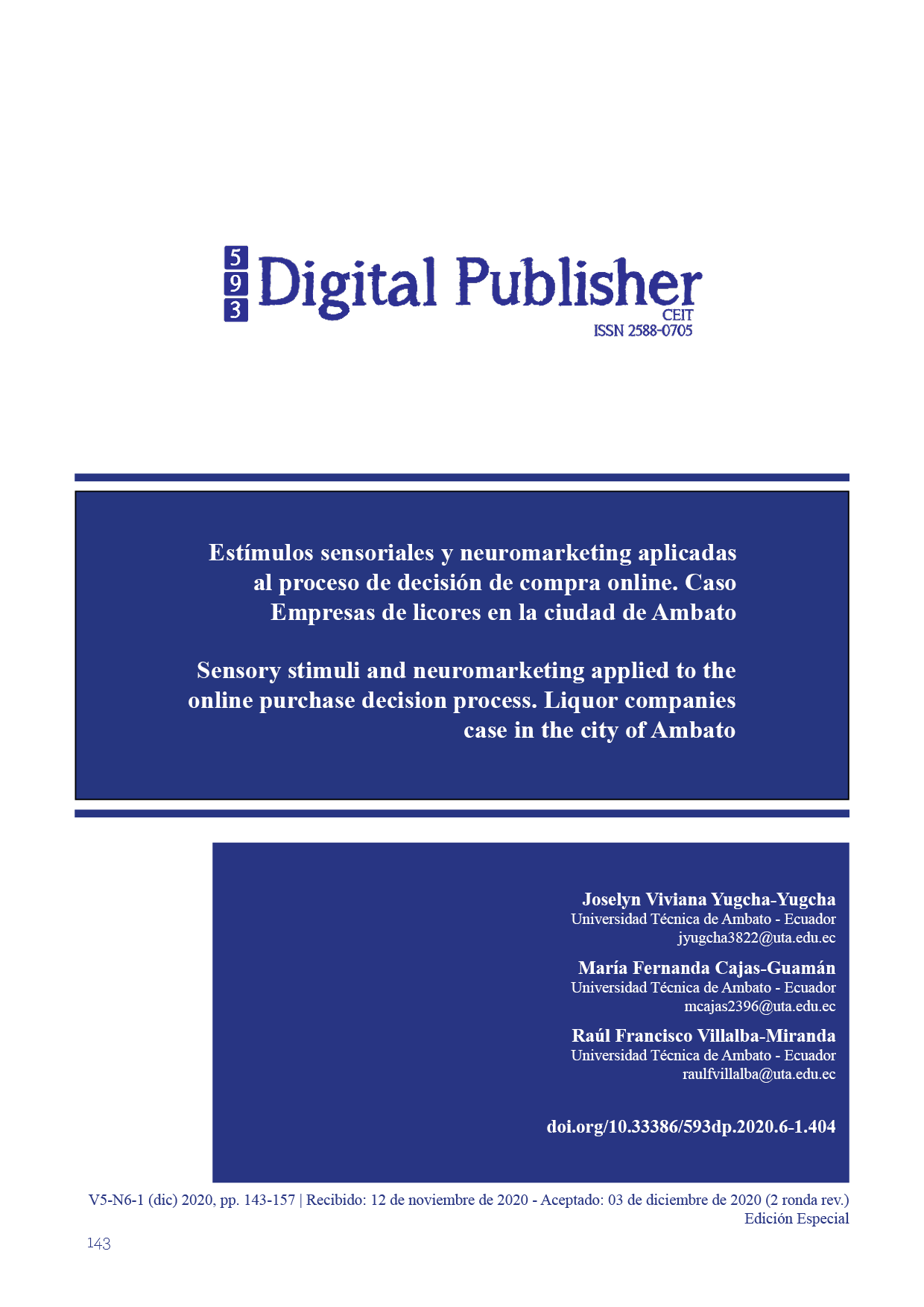Sensory stimuli in neuromarketing practices applied to the online purchase decision process, case: Liquor companies in the city of Ambato
Main Article Content
Abstract
The current business world faces increasingly accelerated market changes, if purchasing habits had already begun to take other directions, adding to the economic crisis caused by the pandemic that has caused the total or partial suspension of commercial activities, Consumers are forced to radically change their purchasing and consumption behavior, thus depending on digital connectivity to carry out any management. Therefore, companies must analyze how to invest in online strategies and tools, sensory marketing uses the five senses, to awaken the desire to consume a certain product and promote immediate purchase decisions. This study aims to determine the most influential sensory stimuli among consumers in the online purchase decision process. The research approach was qualitative, since thanks to the literary review it was possible to develop the data collection instrument and quantitative because the level of perception of the visual and auditory stimuli of the consumers was calculated. Through a descriptive scope and a non-experimental design, it was possible to determine the most influential sensory stimuli that should be analyzed in the online purchase decision process. The study sample was three hundred and seventy-nine (379) people who consume liquor, key information for the development of the research. The main result obtained was that, the visual stimulus was activated in the first instance in both men and women after viewing the advertising video. It is concluded that sensory marketing applied to online purchases has its limits. However, the visual and auditory senses can be stimulated to guide the purchase decision.
Downloads
Article Details

This work is licensed under a Creative Commons Attribution-NonCommercial-ShareAlike 4.0 International License.
1. Derechos de autor
Las obras que se publican en 593 Digital Publisher CEIT están sujetas a los siguientes términos:
1.1. 593 Digital Publisher CEIT, conserva los derechos patrimoniales (copyright) de las obras publicadas, favorece y permite la reutilización de las mismas bajo la licencia Licencia Creative Commons 4.0 de Reconocimiento-NoComercial-CompartirIgual 4.0, por lo cual se pueden copiar, usar, difundir, transmitir y exponer públicamente, siempre que:
1.1.a. Se cite la autoría y fuente original de su publicación (revista, editorial, URL).
1.1.b. No se usen para fines comerciales u onerosos.
1.1.c. Se mencione la existencia y especificaciones de esta licencia de uso.




